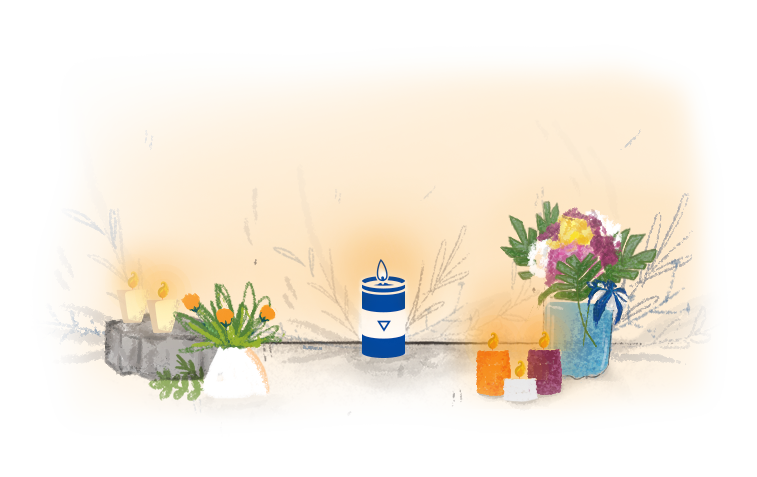
Erick Antonio Jiménez López
33 Years Old - Obrero

Erick Antonio Jiménez López
“Reparations would lessen this pain a little”
Murdered in Masaya on July 17, 2018
Nelly Grisselda López García was the aunt of Erick Antonio Jiménez López, but she says they were raised as siblings because they were so close in age, and because they were both raised by their grandparents. Their grandfather was a barber, their grandmother a seamstress, and they cared for their daughters as well as their grandchildren. They lived in Monimbó and were a close-knit family. The kids helped out, and worked with their grandmother making decorations for the dresses she sewed. Later, they pursued their own lives.
Nelly recalls that Erick helped the family out a lot. When money ran low, he would find a way to earn some, and he always made sure the children in the family could have birthday celebrations. He loved his son Hamilton David, who remembers how his father took him to play baseball. Some of his dad’s nicknames were “Bull”, “Bambi” and “Machi”.
After graduating from high school, Erick entered the Military Academy. He spent six months there and then left to work in the free-trade zone. “He wanted Nicaragua to be free. He cried when he came home from work and heard that someone had been killed in Managua and another somewhere else,” says Nelly López.

On July 17, Erick left for work with his co-workers, but when they reached the barricades, the young protesters told them that the paramilitaries were entering Monimbó and that they were going to grab them outside.
His aunt will never forget what he lived through. “Erick came home in tears, from anger and but also from courage.” His mother gave him coffee, and we all stayed safely inside. They could hear the gunfire coming from near MEBASA, and the protesters were running away. His sister told him to come inside, but he answered that he wasn’t going to stay there just watching… His sister said, “I think it was Bambi.” “When I heard this, I went outside and I saw Erick there, on the ground. I threw myself on top of his body, I grabbed him, hugged him. I felt the bullets flying over my head. Everything was soaked in blood… coming out of his chest where he’d been shot. I stayed there, embracing his body so that they wouldn’t take him. My husband told me to get inside, but I wanted to bring Erick’s body into the house…”
While Nelly was covering the body of her nephew under a hail of bullets, the paramilitaries continued shooting and screamed, “This one should die like a dog, like the dog she has next to her.” She heard it but didn’t move. In those moments, she was only thinking about her mother, and how much Erick’s grandmother would suffer when she found out. She hadn’t had any sons, “and since he was little, this boy had meant the world to her.” How would she tell her? She couldn´t imagine the pain she would endure when learning that her adored grandson was dead.
When pro-government neighbors offered the paramilitaries some drinks and they were momentarily distracted, the protesters helped move Erick’s body. With help from her husband and nephew, they placed him on a board and carried him into the house.
“When my mother realized what had happened, she went crazy. Everyone was crying; no one could believe he was dead. I asked myself why he had died and not me… I was also there, under the bullets. But the bullets gave me strength, the courage that I still feel in my heart,” recounts Nelly.
Now she only hopes there will be justice and reparations. “Justice would mean identifying the people who did the damage, and reparations would lessen this pain a little. With the memory of what we lived through, we will prepare our children for a better future and keep this from happening again. Our dead should be their heroes. Because this heroic and unequal fight was undertaken by the people who rebelled against a dictator.”
I want to know more